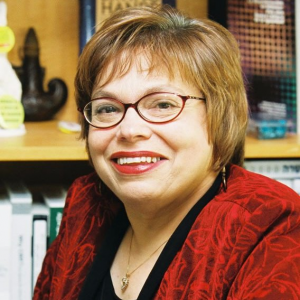The ADA turns 28 today. The law raised expectations on the part of Disabled people and many in society that over time we will break barriers and achieve equality. We’ve made some progress, but there is still a lot to be done. Twenty-eight years after our Emancipation Proclamation equal opportunity is still elusive.
It took thousands of years for society to build up the belief that people with disabilities are not able and not equal. We are still dealing that legacy. Discrimination, unfortunately, doesn’t end easily. That is why the ADA and its predecessor, Section 504, are so critically important. The laws, the associated technical assistance and enforcement mechanism have been essential in moving us forward. The system is far from comprehensive, however, and it is failing many of us.
We’ve heard the employment statistics. Fewer than one-third of Disabled people (18-64) are working compared to 75 percent of those without a disability. This economic inequality is broader than employment. We tend to have lower levels of education (16 percent of people with a disability had completed at least a bachelor’s degree compared to 35 percent of people with no disability) and are more than twice as likely to be living in poverty. Of course, these statistics are linked. Lack of education impacts employment opportunity which impacts poverty; poverty impacts access to education which impacts employment opportunities.
We are seeing progress, yet the employment statistics are dismal. We know it doesn’t need to be this way. More than 400 Centers for Independent Living across the country, managed and staffed predominantly by Disabled people, are running agencies and providing services. We see what we’re able to do within our own organizations, but we haven’t been able to transition this belief to the business community.
We are seeing progress, but we have been playing “catch up” in the employment arena. The world of work is changing so just catching up will leave us behind. The “future of work” is a hot topic with experts debating the impact of automation, technology, artificial intelligence, the gig economy and list goes on. This change is both frightening and promising. I see potential, but I also see significant risks. If we want insure equal opportunity in this evolving world, we need to make sure we are at the table in these discussions and make sure that our educational system for Disabled children is evolving to keep pace with the changes.
We are seeing progress, yet every time I hear of a Disabled person being hired for a great job I think, “I sure hope this works out,” because if it doesn’t, I worry the employer will never hire another person with a disability. I wonder if a non-disabled person doesn’t work out, will they choose to hire only Disabled people?
We are seeing progress, but we are hampered by an undercurrent of poverty and racism that plays out in the mass incarceration of people of color, many of whom have disabilities. According to the most recent available data from the Bureau of Justice Statistics, 32 percent of prisoners and 40 percent of jail inmates reported a disability, while they make up only 11 percent of the general population. I believe this is the fault of the system in its failure to provide education and training that youth and adults of color should be receiving so they can move forward in society. Disability laws, policies and programs exist to support ALL people with disabilities, but the lack of enforcement, coupled with ableism and racism, has led to even lower graduation rates, lower employment rates, more poverty and more incarceration among Disabled people of color.
As we fight, we need to build coalitions that extend beyond the Disability community and collaborate and cooperate in meaningful ways. We need to address discrimination in hiring. We need to review our education system to make sure we are preparing students with disabilities for the future of work. We need to work with organizations addressing the issue of mass incarceration. There is so much yet to do. Take the mantle. You might end up as an episode on Drunk History.
Judith Heumann is internationally recognized as a civil rights activist and leader in the disability community. She is a Ford Foundation Senior Fellow and is growing her social media presence through The Heumann Perspective. From 2010-2017, she was the Special Advisor for International Disability Rights at the Department of State. While there, Ms. Heumann led efforts to assist foreign governments and civil society organizations to protect the rights, and ensure the full inclusion, of persons with disabilities. She served as World Bank’s first Advisor on Disability and Development and was the Assistant Secretary for the Office of Special Education and Rehabilitative Services in the Department of Education during the Clinton Administration. Ms. Heumann co-founded the World Institute on Disability and the Center for Independent Living in Berkeley, California.
